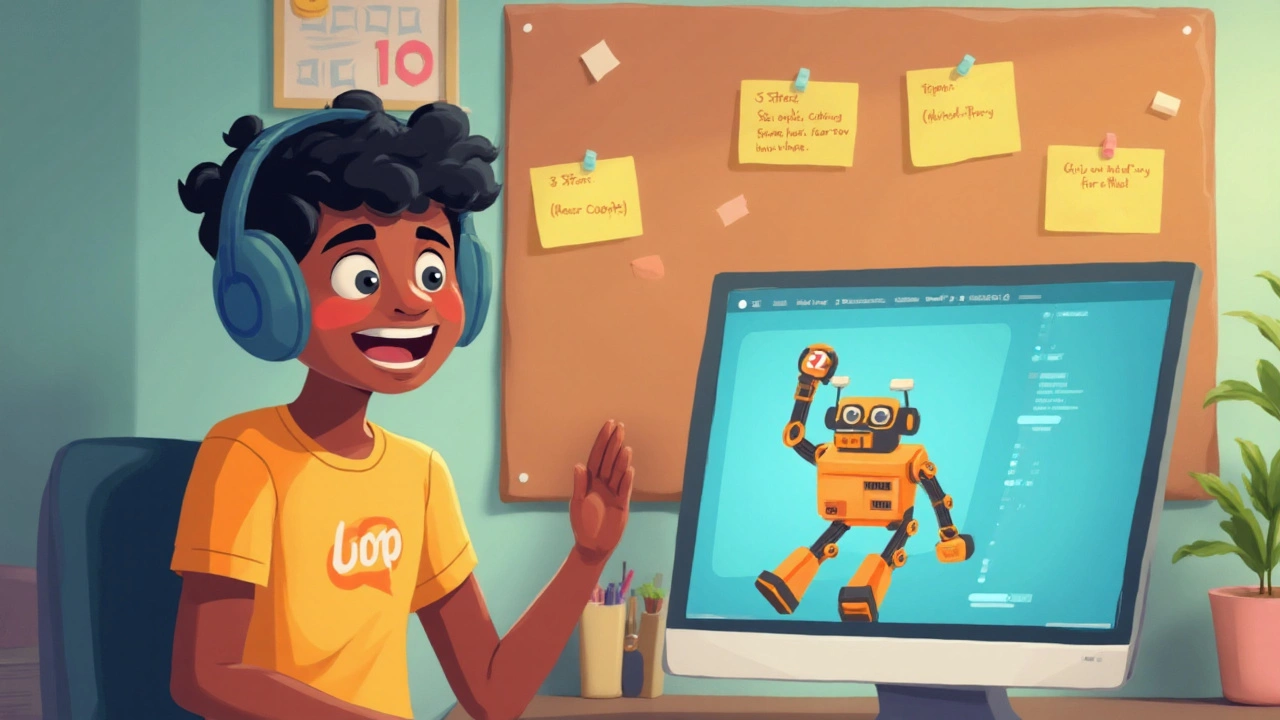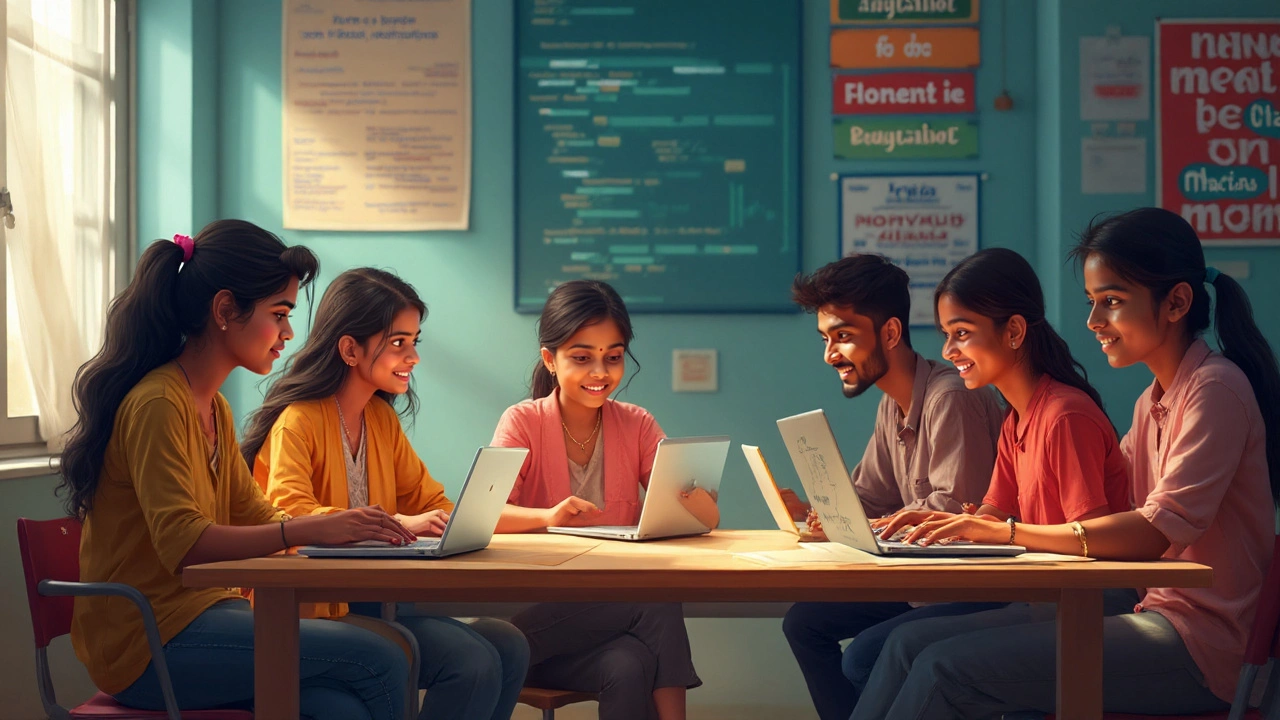Picture this: Some folks swear coding is rocket science, while others insist their dog could pick it up if given a laptop. Both are missing the point. Learning to code is a bit like learning to ride a bike—wobbly, awkward, and full of scraped knees at first. But ask someone who actually made it past those first few tumbles and they’ll tell you: It might not be easy, but it’s absolutely doable. So what’s actually going on when someone sits down to code for the first time? Spoiler—it's not just about logic and problem-solving; it's also about patience, curiosity, and a bit of creative thinking thrown into the mix.
Why Coding Seems Hard (But Isn’t Impossible)
So, why does programming feel like an uphill battle, especially during those first couple weeks? The answer is part psychology, part reality. One big reason beginners freak out is that coding looks foreign, literally—just strange words and symbols arranged in weird ways. It's not like picking up the guitar and strumming away to your favorite song on day one. In fact, the average person spends between two and six months just wrapping their head around basic coding principles like loops, variables, and conditionals, according to surveys from Stack Overflow.
Beneath the intimidating syntax, though, coding is really a way to tell the computer what to do in a very specific way. Miss a comma? The whole thing falls apart. That’s very different from how humans communicate in daily life. It’s no surprise that a 2023 study by Coursera showed over 60% of beginners in their popular Python and JavaScript courses named “frustration with errors” as their top obstacle. Computers are picky, and they don’t accept shortcuts or sloppy instructions.
But here’s the silver lining: Most beginners get stuck on the same stuff. The first 100 error messages? They’re pretty much a rite of passage. After slogging through those, things start to ‘click.’ The first time you write code that doesn’t just run, but actually does something cool—like pulling the weather for your city or making a game—it’s addictive. Suddenly, the mess of syntax starts to feel familiar. In fact, online learning platforms like Codecademy and freeCodeCamp see users who push past the first dozen lessons sticking around about 45% longer than those who don’t.
Ironically, the hardest part isn’t the code itself, but the mental blocks. Expecting instant results? That’s a fast track to burnout. Treating every error like a disaster? That kills motivation. But giving yourself permission to mess up, to slow down, and to just tinker with things—that’s where real progress hides.

Breaking Down the Basics: What Do Beginners Really Need?
If you’re starting from scratch, it’s tempting to think you need an ultra-high IQ or a math Ph.D. Spoiler: you don’t. Some of the world’s best coders started with jobs in art, retail, or teaching. You need curiosity, grit, and a bit of structure, not genius. Here's the play-by-play for what actually matters when you're a beginner:
- Learn by Doing: Tutorials are great, sure, but nothing replaces typing code and seeing what happens. Try free sites like Replit or Codecademy, which let you code in your browser with instant feedback.
- Start Small, Stay Consistent: Most successful beginners report doing 20-30 minutes of daily coding over cramming for 4 hours once a week. It’s like brushing your teeth—not glamorous, but it works. A Harvard study in educational psychology proved that “distributed practice” led to 45% better retention in coding bootcamp grads compared to binge learning.
- Pick the Right Language: Don’t try learning five languages at once. Python is a favorite for first-timers because of its readable, almost “English-like” syntax. JavaScript is also a top pick—web browsers run it natively, so you can see results immediately.
- Use Visual Aids: Websites like Visualgo.net make tricky ideas clear by visualizing how code runs step-by-step. Sometimes seeing beats reading every time.
- Don’t Ignore the Community: Platforms like Stack Overflow, Reddit’s r/learnprogramming, and Discord servers are gold mines. Most questions you’ll have—even the embarrassing “why won’t my code run?” ones—have already been answered by another beginner.
You might be surprised, but according to Github’s 2024 Octoverse Report, almost 29% of new pull requests (that’s coder-speak for 'code contributions') came from total beginners. Translation: The only thing standing between you and making real software is sticking with it through the rough patches.
As a beginner, you’ll stumble into tasks like printing “Hello World,” fiddling with for-loops, or building tiny calculators. The first dozen projects might feel boring or clunky—that’s part of the drill. They're like riding with training wheels until you’ve got the muscle memory. By the 10th small project, even the error messages start making sense. And let’s be honest—Googling “what does this error mean?” is practically a rite of passage for developers at every level.

Facts, Figures, and Battle-Tested Tips for Getting Past the Hard Parts
Getting real for a second: everyone stumbles. But what separates those who bounce back from those who quit for good? Science and stats can actually help here:
| Challenge Faced | % of Beginners Affected (2024 survey) | Proven Fix/Tactic |
|---|---|---|
| Syntactical errors (typos, missing brackets) | 76% | Use tools like linters or simple code editors with highlighting |
| Concept confusion (loops, variables) | 68% | Break big ideas into tiny, testable code chunks and watch visualizations |
| Feeling stuck/loss of motivation | 54% | Join a group, ask questions, and build real mini-projects to see progress |
| Comparing progress to others | 49% | Keep a code journal—note what you learned or solved daily |
Tired of memorizing and still not getting it? Try the “rubber duck debugging” trick—explain your code line by line, out loud, to an actual rubber duck or teddy bear (no kidding, it works!). A Cambridge study found students who verbalized their thought process fixed bugs 35% faster than those who kept silent.
Need a mindset boost? Even Google’s top engineers ran into brick walls early on. There's a famous story about a new grad who took two days to track down a missing semicolon. The lesson there? Even the pros are just persistent beginners who didn’t give up. It helps to celebrate small wins, like finally nailing nested loops or seeing your app do something new, no matter how silly. Progress is the point—nobody’s expecting perfect code from beginners, not even employers.
Don’t be afraid to cheat a little (ethically). Copy code snippets, tweak them, see what breaks, then fix them. Real coders do this daily. You’ll find yourself solving the same kind of error so often it eventually becomes second nature to fix it on sight. There’s no shame in using Google or consulting documentation—that’s literally how the pros do it.
And if you want to keep your momentum, anchor your coding around real interests. Into basketball? Build a stats tracker. Like music? Make a playlist generator. Solving a problem that actually matters to you isn’t just more fun–it’s the fastest way to get those “aha!” moments and remember what you learned.
Bottom line: coding for beginners isn’t about mastering algorithms overnight. It’s about committing to showing up, making mistakes, and enjoying the ride. Once you’ve conquered those early hurdles, you’ll be surprised how quickly ‘hard’ turns into ‘habit.’

